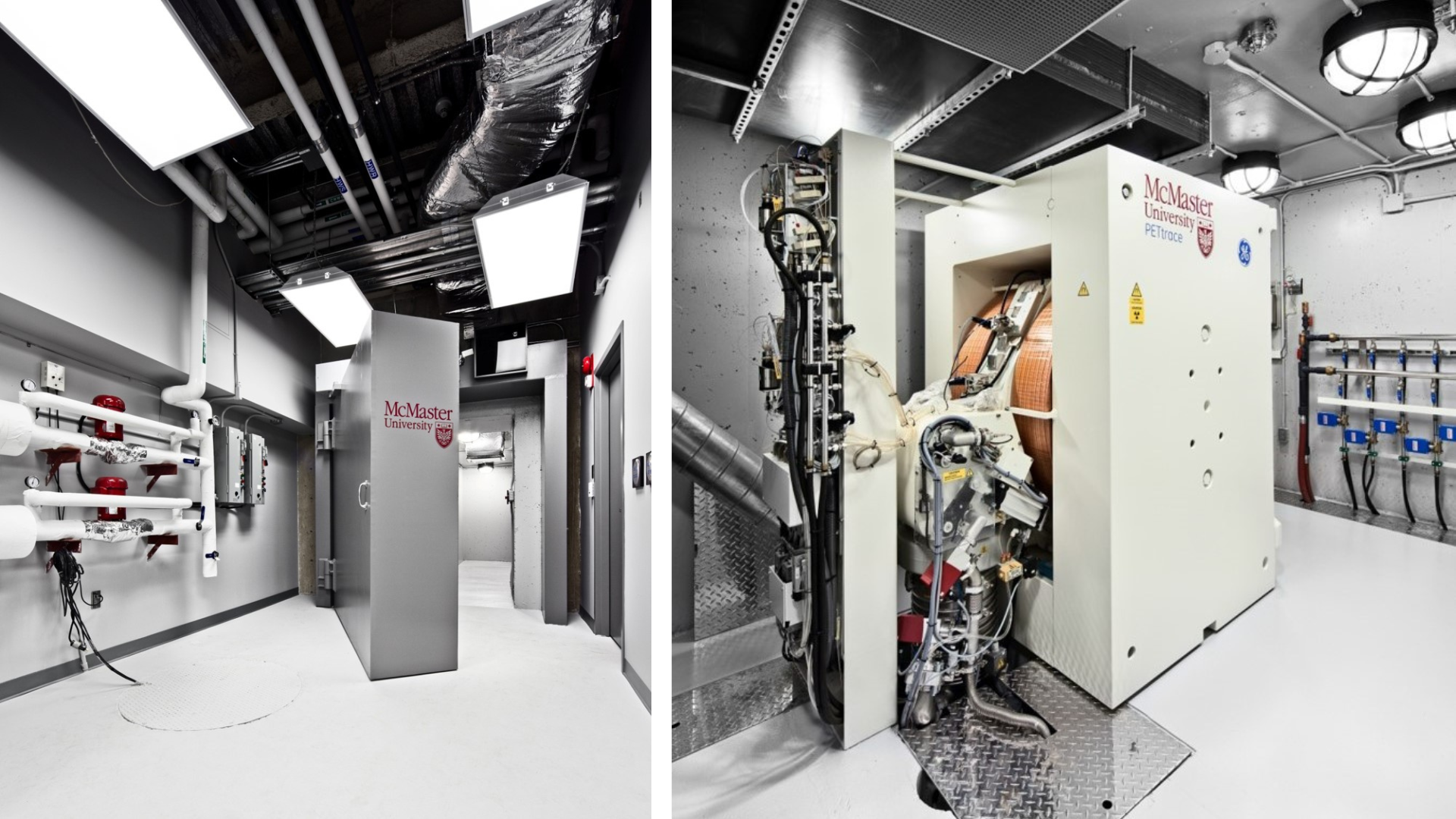McMaster increasing production of zirconium-89 to support research in nuclear medicine

The McMaster University Cyclotron Facility (MUCF) is increasing production of medical isotope zirconium-89.
Zirconium-89 is a positron-emitting radioisotope that is often incorporated into radiopharmaceuticals for diagnostic PET imaging. It can be attached to antibody-based drugs to reach different targets in the body. The isotope is being produced at MUCF, which is home to a 16.5 MeV GE PETtrace cyclotron designed to produce short-lived positron-emitting isotopes.
Zirconium-89 is now available to on-campus and external researchers. Those interested in the zirconium-89 oxalate can contact mucf@mcmaster.ca for more information about our production schedule.
About Nuclear @ McMaster
McMaster University is Canada’s preeminent nuclear research institution and a world-leading supplier of medical isotopes used to diagnose and treat diseases like cancer. McMaster is home to a suite of world-class nuclear research facilities – anchored by the McMaster Nuclear Reactor (MNR) – that enable discoveries in clean energy, environmental science, materials research and nuclear medicine, while providing cancer treatments for over 70,000 patients every year.
McMaster houses the McMaster Nuclear Reactor (MNR) – a major source of neutrons – and the McMaster University Cyclotron Facility (MUCF), which contains a particle accelerator used to bombard targets with protons. Together, these two complimentary facilities give us a broad range of isotope production capabilities.
Learn more about becoming a user of McMaster’s nuclear research facilities.
Health, News